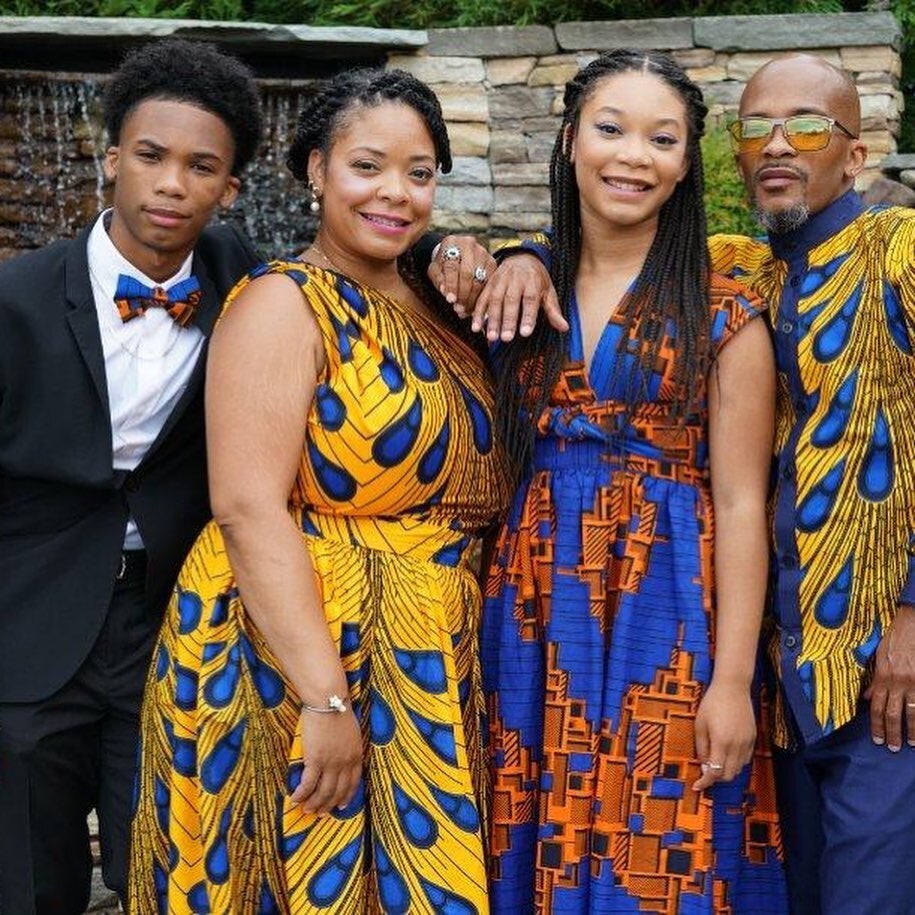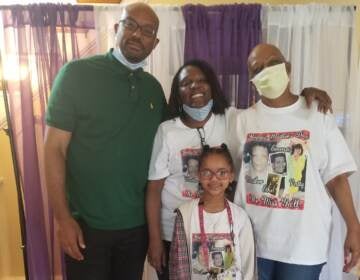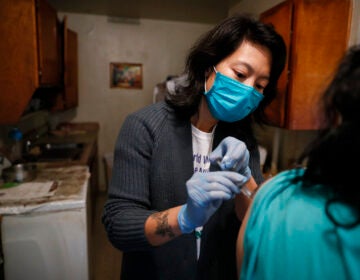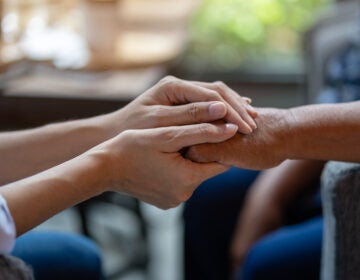A conversation with the author of ‘Black Fathering and Mental Health,’ a new book on navigating the challenges — and embracing the joys — of parenthood
While acknowledging the unique challenges that Black fathers and children face, Hannon’s goal is to also share the joys of being a parent.
Listen 3:18This is the first story in “Making Space for Black Health,” a new WHYY series featuring people and places that promote Black health and well-being in our region. Support for our reporting on health equity comes from the Commonwealth Fund.
Fathers’ Day is almost here, and a new book from local author Dr. Michael Hannon provides resources and guidance for Black fathers.
Hannon is a mental health counselor in New Jersey and associate professor of counseling at Montclair State University. In “Black Fathering and Mental Health: Black Fathers’ Narratives on Raising Their Children Across the Family Life Cycle,” the author shares essays from Black mental health professionals about facing racism, stereotypes, and negative, internalized messages on parenting.
While acknowledging the unique challenges that Black fathers and children face, his goal is to also share about the joys of being a parent.
WHYY recently sat down with Hannon to talk about these lessons.
What was your inspiration behind writing this book?
My inspiration really is my lived experience. I’ve been privileged in many ways. There are some parts of my identity that make me vulnerable because I’m a Black man, vulnerable to forms of racism and other kinds of oppression. My wife and I are both highly educated in the most formal sense of the word. But what I also recognize as an observer of the world and as a researcher, is that Black folks and Black men in some ways, particularly our voices and our representation in all forms of media in many cases, have been intentionally distorted. In some ways, it’s done unintentionally, but it’s still distorted.
Did you know specifically how you wanted to wrestle with the concept of black fathering and mental health?
I wanted to attempt to give folks the opportunity to hear from Black men, or those in communities with Black men, who aspire to be, or were Black fathers, or other children of Black fathers — and hear them talk about what it’s like aspiring to be a Black father, being a Black father at different points when they’re raising their children across the lifespan, or being the children of Black fathers and talking about their experience retrospectively, or even currently.
Was there any statistical data that you pointed to, that looked at the health disparities of black fathers?
It’s well documented that Black folks in our country, and arguably globally, have underutilized counseling and mental health services. And the reasons for that underutilization are so varied and complex. But what we do know, and we continually see evidence of, is forms of structural and institutional racism. So, if we think about the abuses of our systems in institutions against Black people, it is absolutely reasonable to believe and understand why there might be some resistance to seeking services from systems that have maligned a group of people so consistently and frequently over generations of time.
I was really taken in by your father’s forward, and wondered what did it mean for you to have your father write the foreword? And from his perspective, why do you think it was so important for him to write it?
I’m fortunate and privileged because my father is living. He’s an unapologetic Black man. He’s an unapologetic pastor and preacher. And he is responsible for orienting me to my manhood and fatherhood. Some measure of any success that I have is a result of his insights and his fathering. For the folks who have picked up this book, so many have remarked about the foreword that he wrote. It was important for me to have him write it because it gives you some context.
In chapter 2, you feature an essay from Dr. Alfonso Ferguson, who talks about the importance of displaying affection and “unconditional positive regard,” and how it improves parenting and the mental wellness of children. He also talks about this concept of “soft masculinity.” Can you talk more about what Dr. Ferguson described in the book?
I think Alfonso’s point about the importance of “unconditional positive regard,” it’s a term that is derived from person-centered therapy, credited to Carl Rogers, who was a psychotherapist. Carl Rogers talked about in order for therapeutic change to take place, if I’m your counselor and you’re my client, you have to experience me in a way that you would say, he had unconditional positive regard. I can literally tell you the most painful, the most horrific, the most offensive things in therapy. As your counselor, in order to facilitate therapeutic change based on the goals that we set in the counseling relationship, I need to demonstrate to you unconditional positive regard so that you don’t feel judged for what it is you’re actually sharing with me, because it may be the first time you are brave enough or feel secure enough to share it.
A theme that comes out of this chapter and others is vulnerability. Can you speak to the importance of vulnerability and why it’s important for readers to understand it?
It’s important for Black fathers, and Black parents, to create the kind of environment where their children and their family members can express their vulnerabilities in ways that are accurate and precise. Hopefully, the expression of that vulnerability is treated with care and not treated as being something wrong or something pathological or something that’s not manly or not fatherly.

Being a black father yourself of two children, what are some of the joys that come with that role?
Good parenting is hard. It is hard parenting Black children because we love our children. Black fathers have unique challenges because we can’t ignore the influence of systemic racism. But there is an inherent joy that can come as a result of even the hardest and most arduous tasks, I think. It is among the greatest joys that I have. A good portion of that is because of the relationship I have with my children. They contribute to my humanity. They require that I be the best version of myself and when I’m not, they unconditionally forgive me. They literally demonstrate unconditional positive regard.
Support for WHYY’s coverage of health equity issues comes from the Commonwealth Fund.

Get daily updates from WHYY News!
WHYY is your source for fact-based, in-depth journalism and information. As a nonprofit organization, we rely on financial support from readers like you. Please give today.








